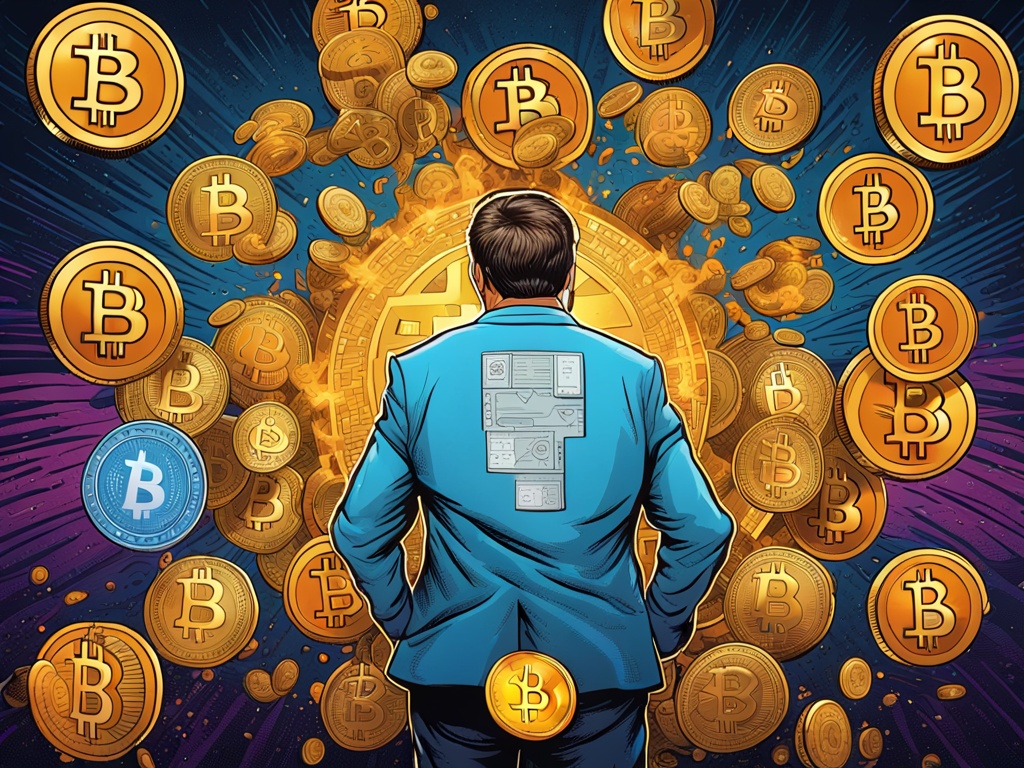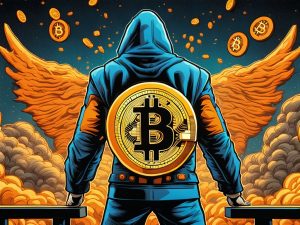El Salvador’s Crypto Road: A Bold Move or a Bumpy Ride?
Imagine you’re at a bar talking with your friends about the latest buzz in crypto. Suddenly, there’s a mention of El Salvador, a small Central American nation making waves by adopting Bitcoin as legal tender. Sounds wild, right? Well, hold onto your drinks, because the latest news coming from El Salvador could shape not just its future but the entire crypto market landscape as we know it. So, what’s the scoop? Is this a bold new chapter or just another blip on the radar?
Key Takeaways
- El Salvador is scaling back some of its Bitcoin endeavors as part of a new agreement with the IMF.
- Despite this, the country plans to continue and possibly accelerate its Bitcoin purchases.
- El Salvador’s Bitcoin law will become voluntary for the private sector, while the public sector will restrict its crypto activities.
- El Salvador’s government holds over 5,900 BTC, currently valued at about $579.4 million.
- Local sentiment towards Bitcoin remains lukewarm, even as President Bukele’s popularity persists.
A Glimpse Into El Salvador’s Crypto Ambitions
So here’s the deal: President Nayib Bukele, known for his unorthodox yet charismatic leadership style, sparked a revolution back in 2021 by making Bitcoin legal tender alongside the U.S. dollar. The idea was to foster economic growth and inclusivity. Sounds great, right? Well, not everyone was on board, and that’s led us to the current situation.
The country has now inked a $1.4 billion deal with the International Monetary Fund (IMF), and let me tell you, the conditions aren’t all sunshine and rainbows. As part of this deal, El Salvador will ease up on its Bitcoin policies, making them voluntary instead of mandatory. This marks a notable shift in what has been a pretty audacious approach to cryptocurrency.
When discussing this, keep in mind that El Salvador’s government has been bullish about Bitcoin—you know, “HODL” and all that jazz. Just recently, Stacy Herbert, the head of El Salvador’s National Bitcoin Office, mentioned that the government would keep buying Bitcoin, potentially ramping up its purchases. This essentially means that even while the country is adopting a more cautious stance due to the IMF deal, the strategic bet on Bitcoin is far from dead.
Financial Insights Worth Considering
Now, let’s talk strategy. If you’re an investor, this news opens up a few avenues:
-
Monitor Market Reactions: Keep an eye on how Bitcoin’s price reacts to this news. The market often has a knee-jerk reaction, so there might be buying opportunities if you notice a dip.
-
Long-Term Holds: With El Salvador announcing it will keep buying, it may indicate confidence in Bitcoin’s long-term value. As an investor, if you believe in Bitcoin’s fundamentals, consider using dips to accumulate more.
-
Stay Updated on Policy Changes: The crypto space thrives on news. Since Bitcoin will be voluntary for businesses in El Salvador, assess how this might affect adoption rates in the coming months. If businesses start to lean away from it, it might influence Bitcoin’s price negatively.
- Diversification is Key: While Bitcoin may be in the spotlight due to El Salvador’s latest moves, remember there are numerous other cryptocurrencies with potential. Diversifying can mitigate risks associated with potential market volatility.
The People’s Response
Here’s where it gets interesting. Polls suggest that while Bukele remains popular—thanks to his policies that have cracked down on crime—many Salvadorans don’t seem too hyped about Bitcoin. In fact, the initial push to incentivize citizens with free Bitcoin through the government wallet, Chivo, didn’t inspire a massive uptick in usage. It’s almost ironic, don’t you think? The very asset touted as a revolutionary step forward for the economy has found a somewhat indifferent audience back at home.
But hey, popularity doesn’t always translate to understanding or utilization. It’s like being the most popular kid in school but never quite getting invited to the big game nights. As you ponder investing in crypto or following in El Salvador’s footsteps, consider how local sentiment might reflect on broader market trends.
Looking Ahead: Is It Worth the Risk?
Wrapping this up, El Salvador’s journey with Bitcoin is emblematic of the wild-west nature of cryptocurrency. It’s full of ups and downs, bold moves, and unexpected pivots. While some might see the scaling back as a defeat, others could view it as a necessary recalibration in an ever-evolving market landscape.
So, will El Salvador’s governmental approach impact Bitcoin’s long-term viability? Will it serve as a bellwether for other nations contemplating similar paths? As investors, we must constantly evaluate the situation and adapt our strategies.
I mean, would you put your money into something when the locals don’t even seem thrilled about it? It’s worth reflecting on. What do you think: Is the ride closer to a thrilling adventure or a rocky road ahead?





 By
By
 By
By
 By
By
 By
By
 By
By
 By
By